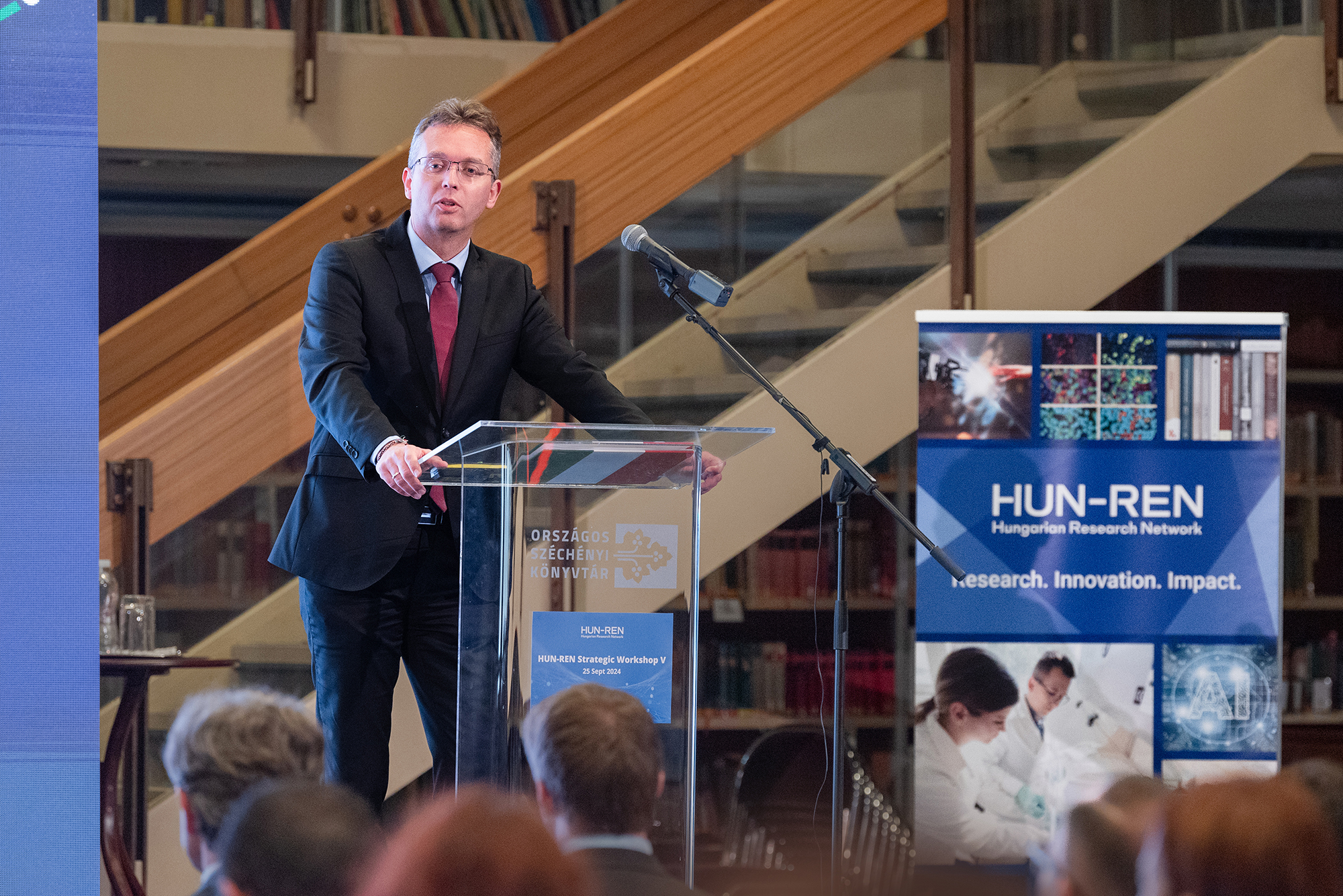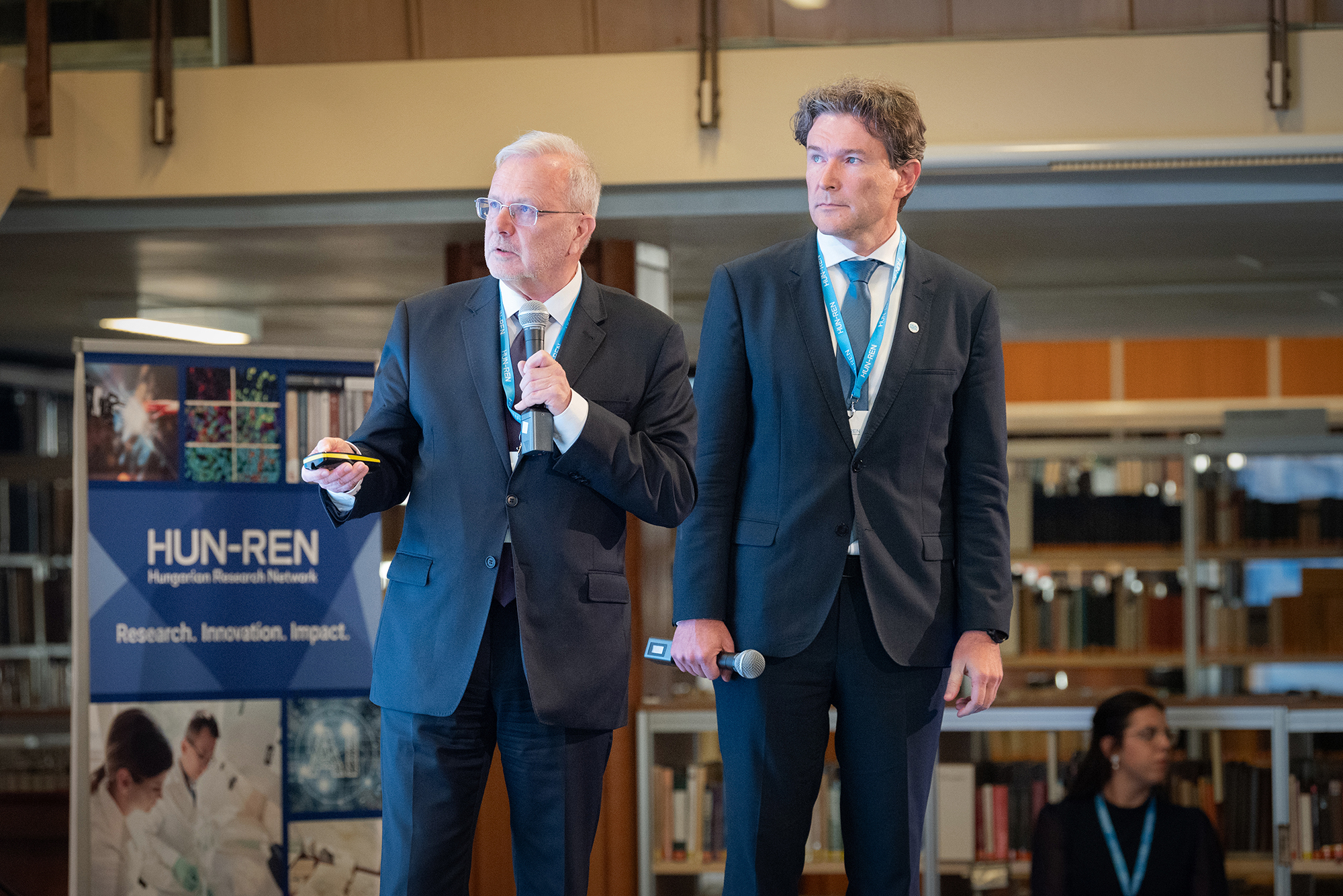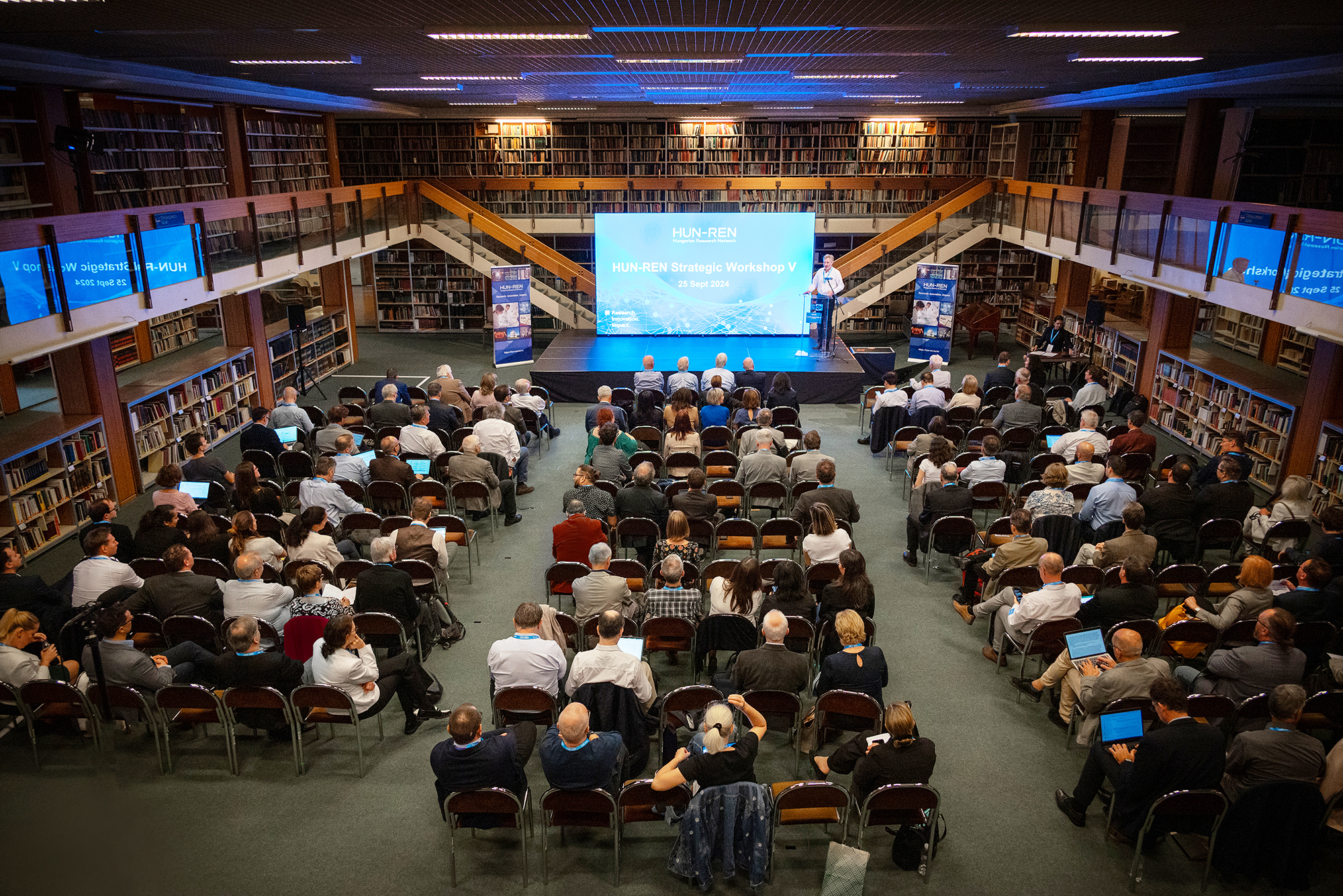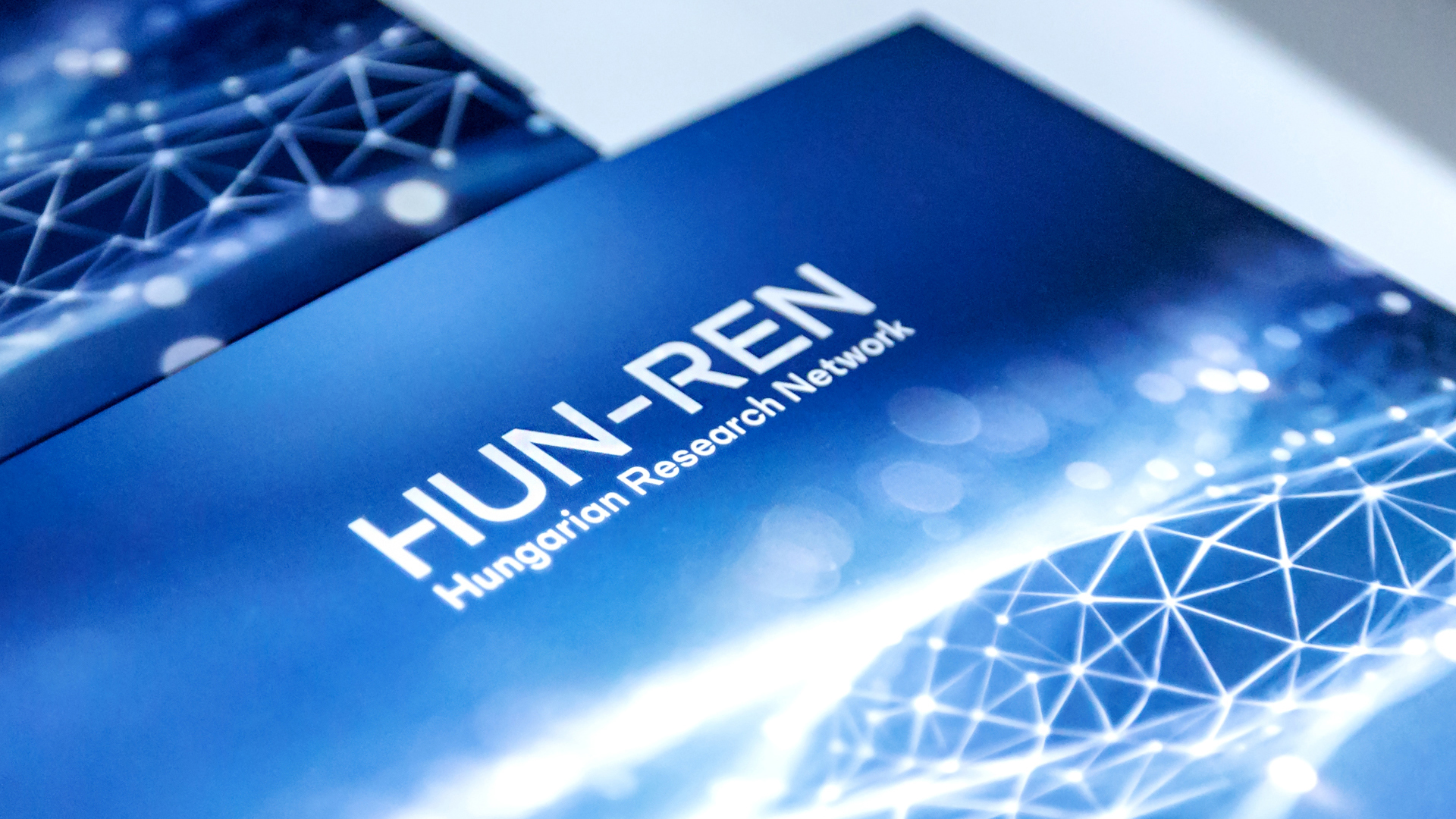We Aim at Strengthening HUN-REN's Effectiveness
Key insights from the joint presentation by the President and the CEO, the Ministerial Address and the Professor leading the international assessment at the HUN-REN Strategic Workshop V.
“A well-functioning HUN-REN is of fundamental importance to the Hungarian economy and society, and the government relies on HUN-REN's research capacity and knowledge base,” emphasised Balázs Hankó, Minister of Culture and Innovation, at the HUN-REN Strategic Workshop V. The Minister discussed strengthening support for excellence-based and impact-driven research in Hungary, particularly highlighting the need to introduce performance-based funding within the HUN-REN network and resolve real estate property issues related to HUN-REN's operations. However, Balázs Hankó pointed out that a significant shift in the Hungarian research network has not yet been achieved, adding that it is HUN-REN's own, yet unavoidable, task to renew the structure of the network and implement internal reorganisations based on the identified challenges. “The government is open to discussing HUN-REN's proposals and further strengthening research excellence,” said the Minister of Culture and Innovation, who offered partnership to the transforming HUN-REN and repeatedly emphasised the need for increased funding for Hungarian research and innovation, as well as the importance of raising researchers' salaries.

“We have reached a turning point. The audit of our research sites has been completed, showcasing the quality and social relevance of the research conducted within HUN-REN. Our working groups, established with the involvement of our researchers and active for six months, have completed the groundwork for the HUN-REN strategy. We have drawn the most important conclusions,” said Balázs Gulyás, President of the network, addressing an audience of research site leaders and international research experts, prior to the Minister’s speech.
“A long-term, predictable, value-driven funding system, a mutually reinforcing structure and operation, competitive salaries at both national and international levels, predictable research careers, and a significant increase in resources, already during the renewal, are the cornerstones of the HUN-REN vision,” said the President, summarising the main findings of the international assessment of research centres and institutes. According to the evaluations, the scientific results of most research sites are satisfactory and, in some cases, even excellent. However, the structure of the research network as a whole requires change, both in terms of the management of individual institutions and in various other operational areas. Also in need of improvement—unusual by international standards—is the lack of a strategy for most research sites, the inefficient management of research infrastructures, and their limited accessibility to researchers.
“The potential of research sites needs to be better utilised,” stressed Balázs Gulyás. Citing the views of international evaluators, he added that at many research sites, the research spectrum is too broad, resulting in fragmented research portfolios, sometimes with overlapping and parallel topics. “It has become clear that performance evaluation is not functioning properly in most cases,” the President confirmed, noting that in such circumstances, it is not surprising that a significant number of research sites face recruitment challenges. In addition, collaborations are typically weak and limited both within research centres and among members of the research network, as well as with external actors.
“The evaluators identified fragmentation within the organisation and shortcomings in the management of individual research sites across several areas. The structural problems identified at both the network and research site levels require fundamental changes,” emphasised Balázs Gulyás, also referring to the EU's recently completed Draghi Report, which aligns fully with the challenges identified within HUN-REN.

“The thematic groups working on the HUN-REN strategy have been operating on the principles of involvement and engagement, putting forward concrete proposals for creating and maintaining a long-term competitive, stable network of research institutes that ranks among the world's elite,” said Roland Jakab, CEO of HUN-REN. He identified several key factors, including the need to secure funding, strengthen entrepreneurial and collaborative mindsets, create harmony between science and innovation, adopt a performance-based approach with quality criteria, and simplify administrative and procurement processes. He particularly emphasised the importance of communication and visibility, the need to strengthen relationships beyond academia, increase the income of PhD students, and achieve competitive salaries in general.
HUN-REN's leaders expressed the view that the Draghi Report is also significant from HUN-REN's perspective. HUN-REN has the potential for renewal, which can now be planned and implemented based on concrete evaluation results. As a result, HUN-REN can become a successful, well-funded, and open scientific institution focusing on social and economic issues, thereby contributing significantly to Hungary's success.
HUN-REN was described as Hungary's "knowledge engine" by Professor Alexander Zehnder, Chairman of the HUN-REN Advisory Board, who also led the international evaluations. He explained that the activities carried out within the research network are not something that can be achieved by universities, for instance. "At HUN-REN, the knowledge that surrounds us is being turned into something that benefits society," he emphasised, adding that real change is now needed to make the network competitive, independent, and flexible.


